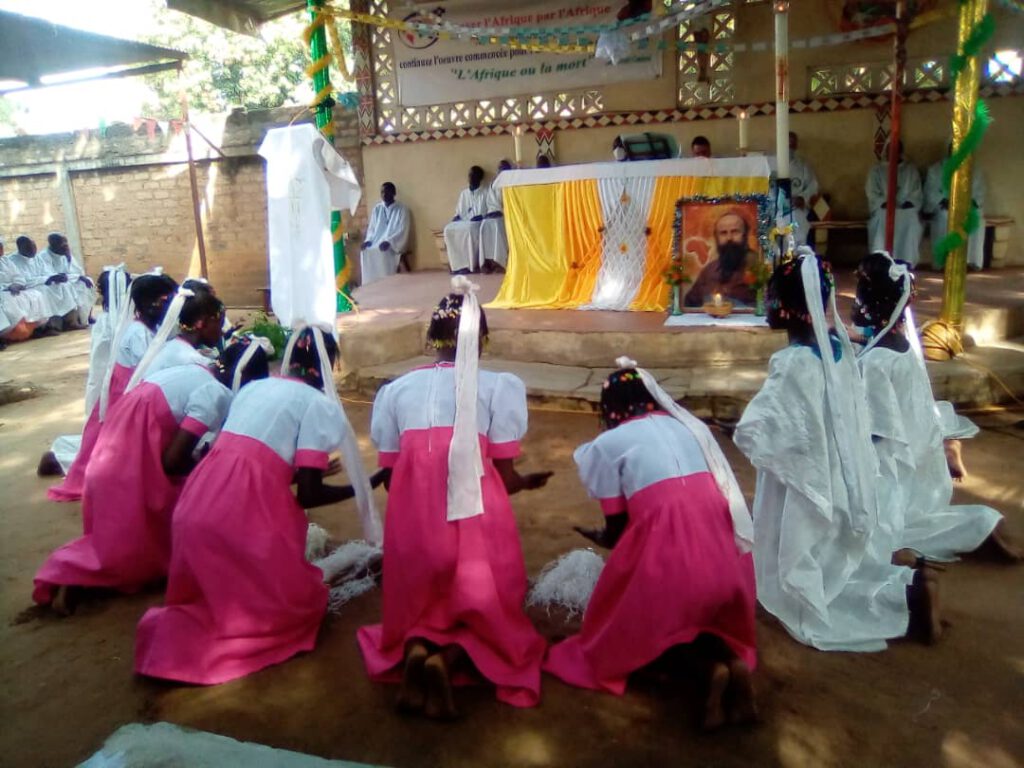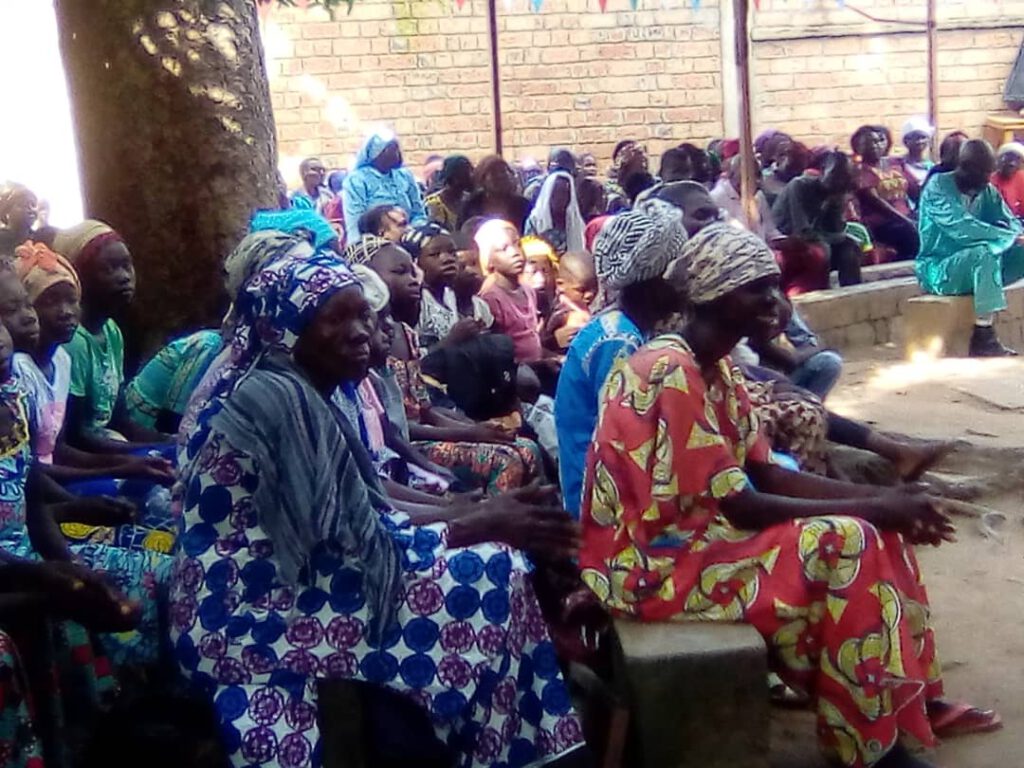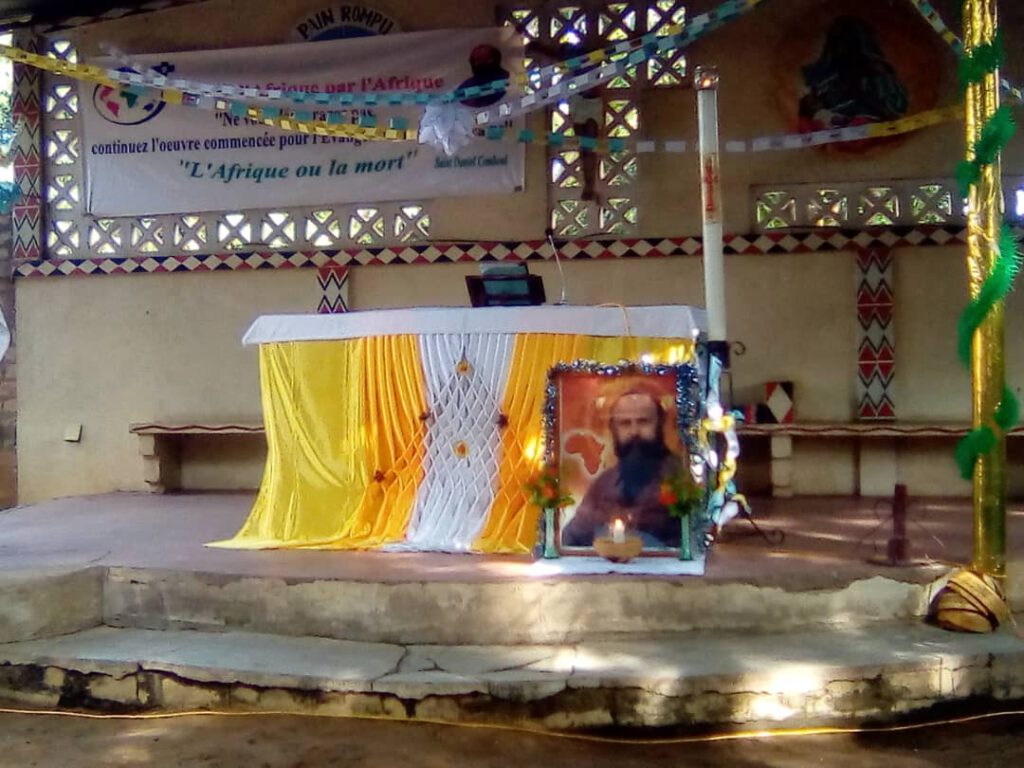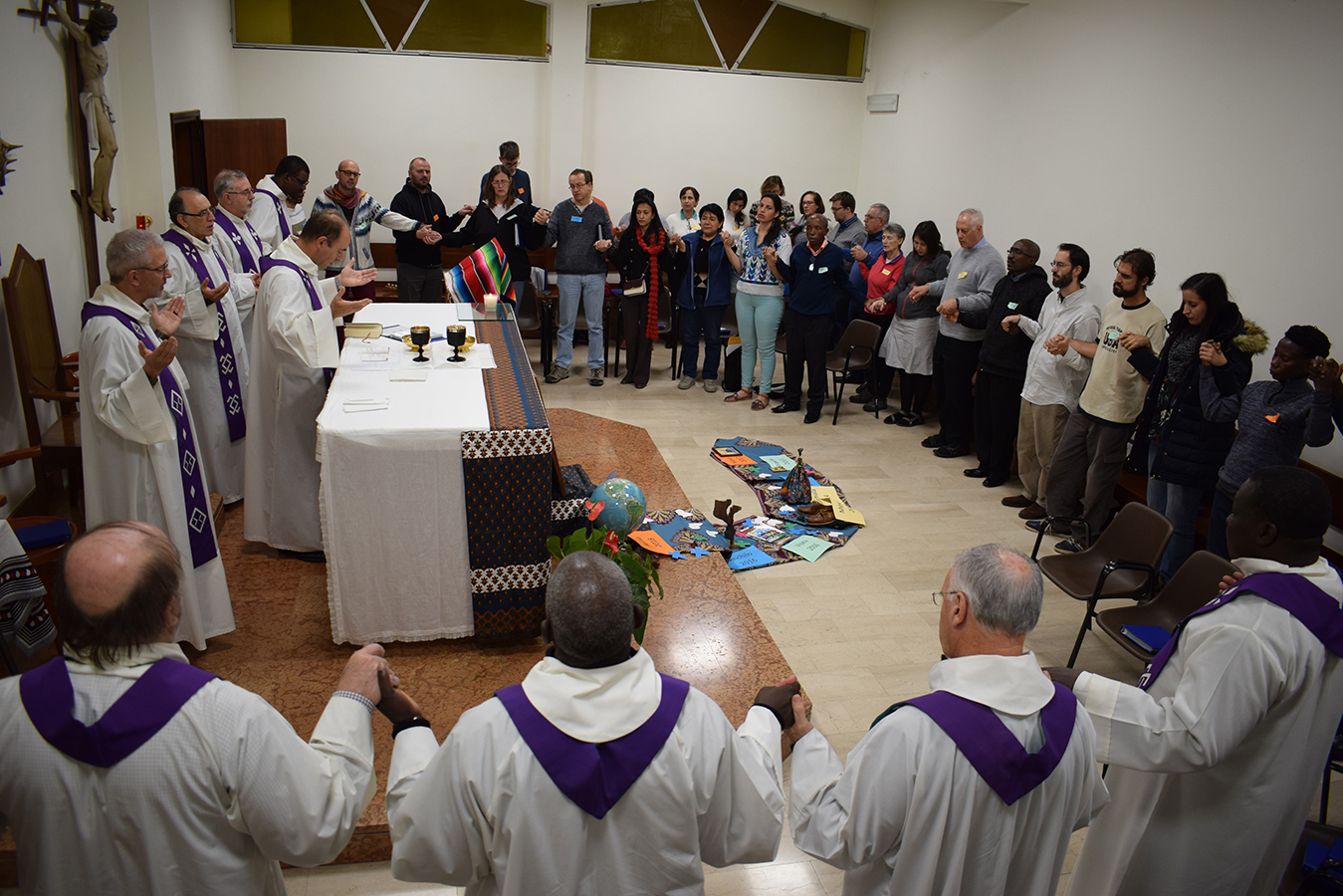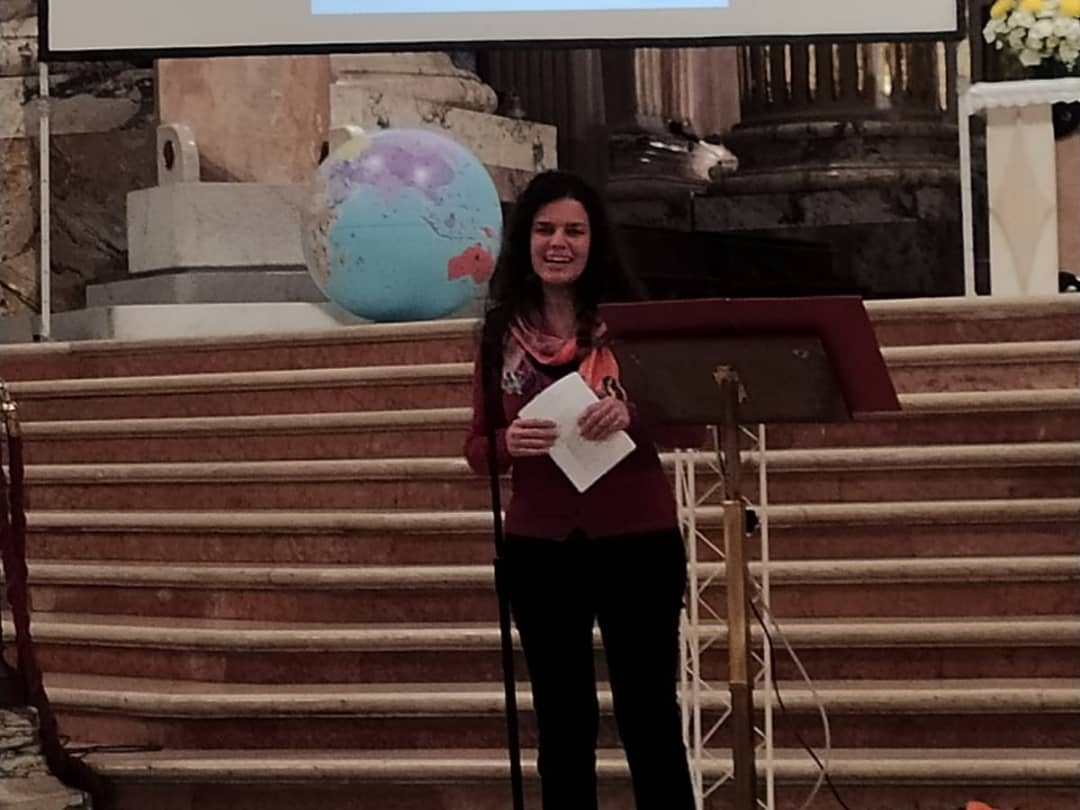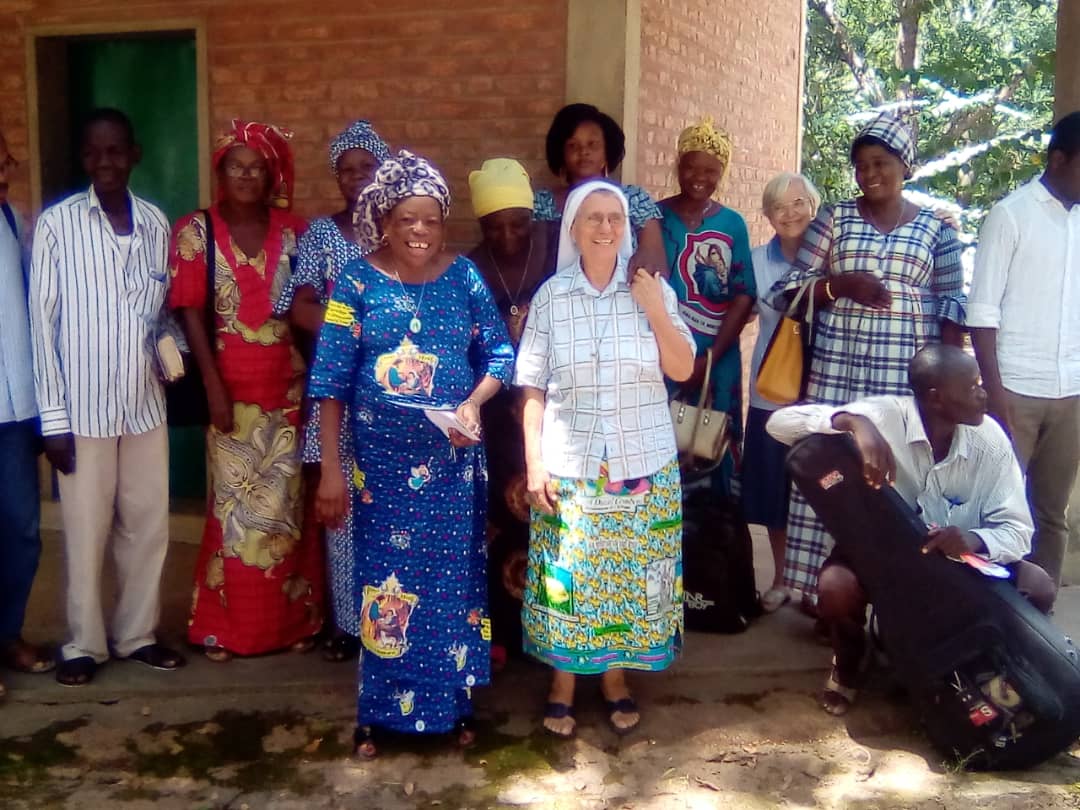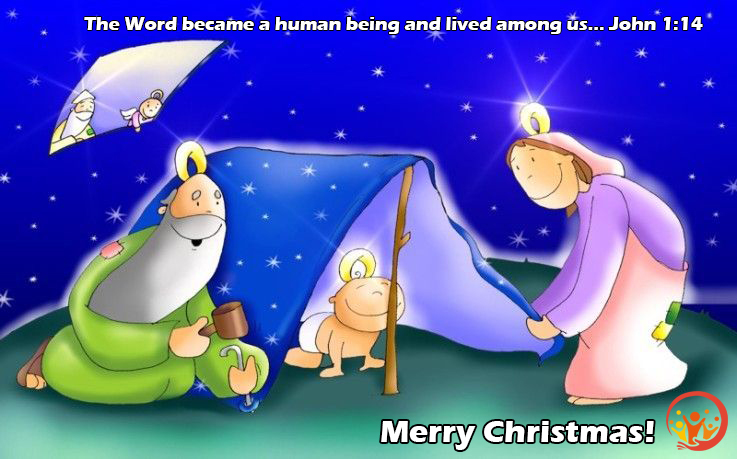
Spirituality
We celebrate our CLM Day
Once again we celebrate our CLM day, the third Sunday of Advent, the Sunday of joy.
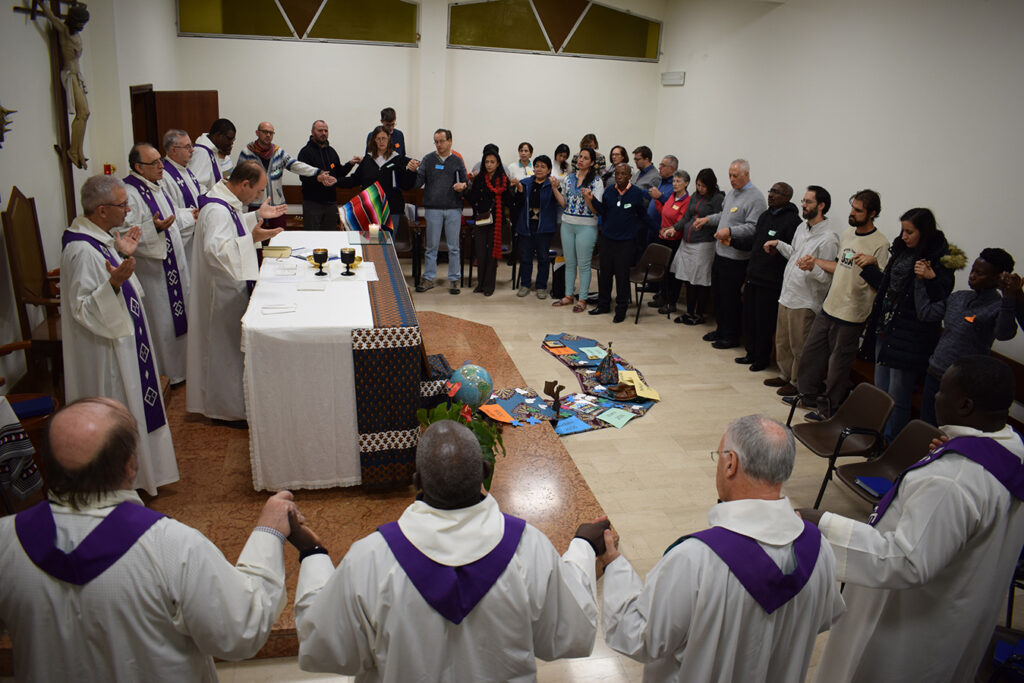
It is a special day for all CLM since at the last assembly held in Rome in December 2018 we approved that day so that we can all celebrate our missionary vocation together.
It has rained a lot since then. Of particular relevance is the pandemic we are going through that reminds us of the fragility of our human condition and how small our common home is.
In the past, when the flu or any other virus entered our home, it would pass from one member to another as soon as we were careless. This is what is happening with this coronavirus. It passes from one person to another, from one country to another, from one continent to another. This invisible enemy shows us not only our weakness but the interconnectedness of all humanity. Each new variant reminds us that it is something we must fight together, no one will be free and if we are not able to share the vaccines and remedies that are being discovered, it will spread again and again.
It is a cry for solidarity, not to hoard, because we are all in the same boat.
Our missionary vocation has always been a gift in this sense. We know and feel that we are one big family as humanity. We feel the weakness of our brothers and sisters and we make ourselves available to go out to help others, leaving home, work, friends, family….
It remains a challenge for us to share what we have discovered or have been given as a gift. It is in our hands to share the richness that each people we have visited, with whom we have shared our lives, has brought us. Caring for, accompanying others has given us much more joy than the little we have been able to do on our part.
It is not a theory, it is a life experience… that we cannot keep silent but share with everyone.
A wonderful world has been given to us. Achieving a dignified life for every person on this planet will allow all of us to better enjoy our own life.
Recognizing that we are all children of the same Father-Mother God who loves us and wants us to love and care for each other as brothers and sisters is the joy we want to share with everyone.
In communion with the rest of the Comboni Family and the whole Church we encourage this to be possible.
To celebrate our vocation is to reaffirm ourselves in it, to remain faithful to the call we have received, to recognize that we are limited, but tremendously loved… and since we cannot keep this Love, we go out to share it with all humanity.
We approach the mystery of Jesus born in a manger on the outskirts of a small village in Palestine… welcomed among shepherds and simple people. May we know how to contemplate and understand this mystery that helps us to place ourselves in history….
Happy day to all CLM around the world and thank you very much to all of you who support us working hand in hand, with your prayers, with your financial help… with your closeness.
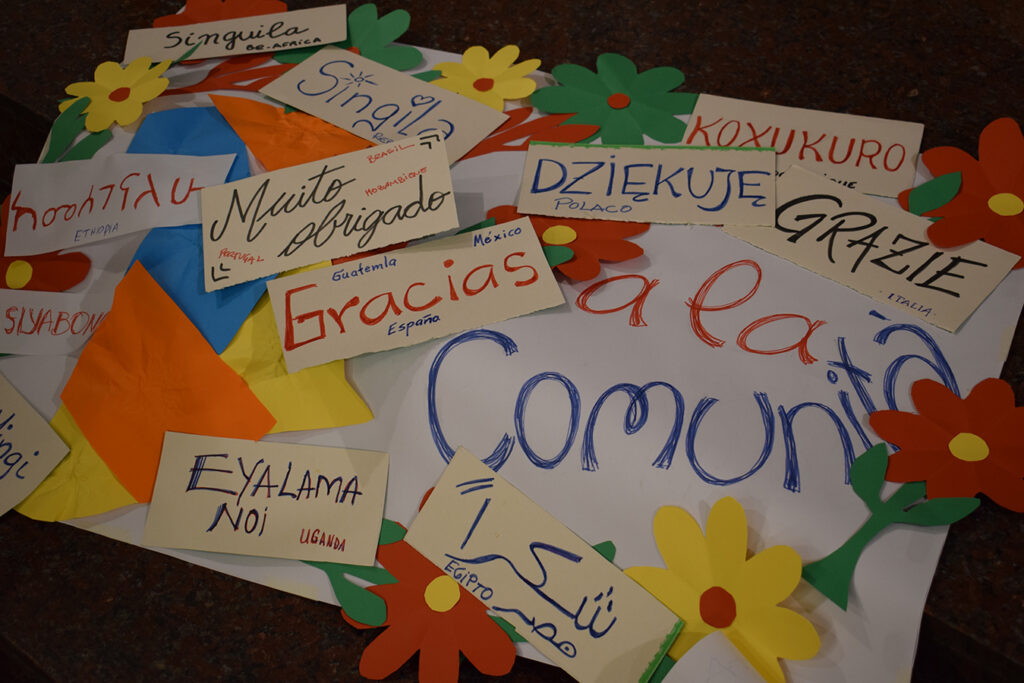
A big hug
Alberto de la Portilla, CLM Central Committee
Prayer Intentions of the Comboni Family December 2021
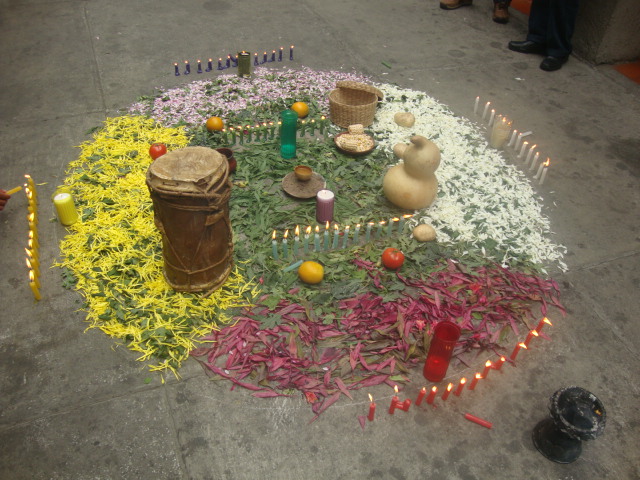
That Our Lord Jesus Christ may grant to all missionaries whom he has called to follow him, fidelity and constancy in the mission entrusted to them. Lord hear us.
Sending celebration for Linda, destination: Kenya!
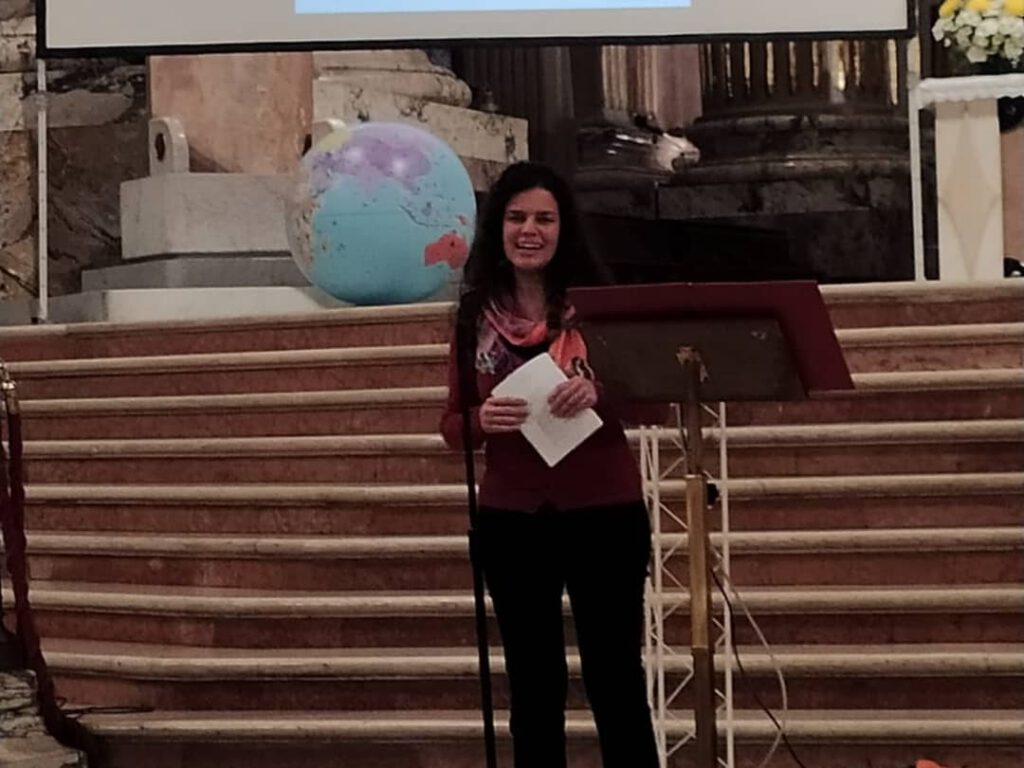
On Saturday, the 23rd October, during the Mission Sunday Vigil prayer in the Cathedral of Bologna, Linda officially received the blessing and mandate as a Lay Comboni Missionary in Kenya from the Cardinal Archbishop of Bologna Matteo Zuppi, the director of the Diocesan Missionary Centre fr. Francesco Ondedei and the whole diocese of Bologna. With her, Katia, a missionary of the Immaculate-Father Kolbe, also received her mandate for Brasil.
With Linda and Katia, today, “we all receive a mandate”, said the cardinal, thanking them for their brave choice, which “encourages us, in turn, to take action, showing us that indeed it is possible, that we all can give our lives so that the Gospel may reach all corners of the earth, with no boundaries”.
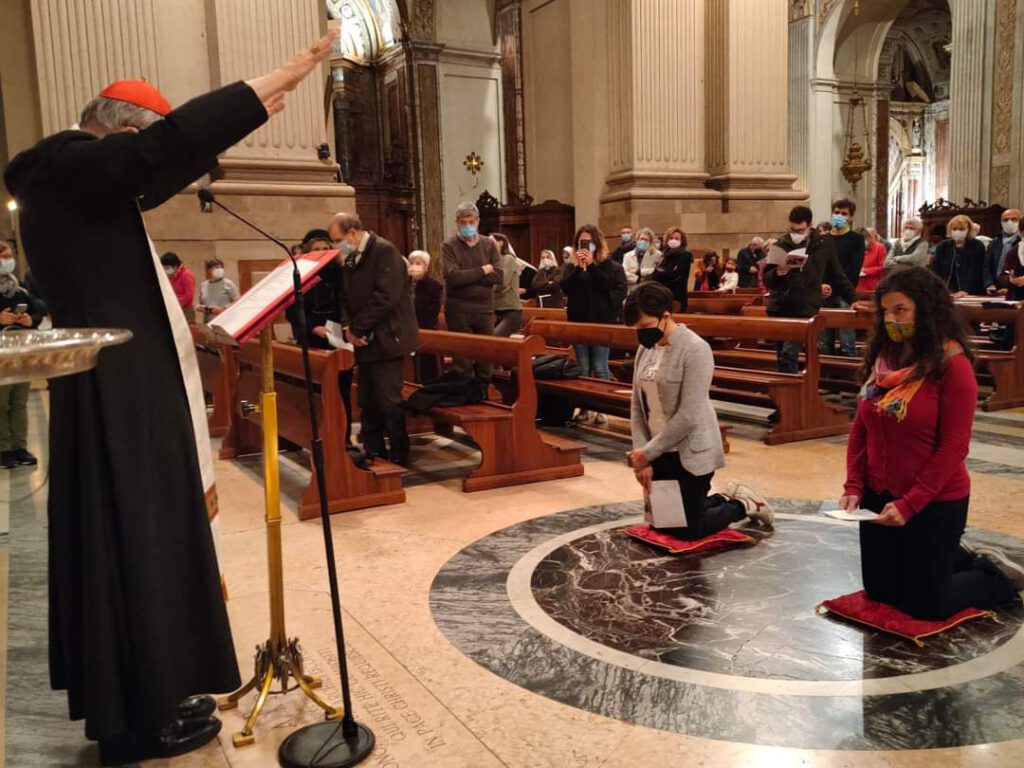
It was a very intense moment, not only for Linda but for the whole group of Bologna, which has accompanied her during these months of preparation and discernment. Significantly, our friends the missionaries of Villaregia, the community where Linda lived for a few months this year, were also present and took an active part in organising the same Vigil Prayer. And the words of the cardinal well reflected our own feelings and visions, as he continued: “Mission is all about being concerned not with my own sake, but OUR sake, caring for others, even those I haven’t met yet (…) Mission starts when, full of His Love, I can feel the scandal of too much suffering and injustice, and I testify Jesus’s love by living it myself and talking about Him.”
And also: “At the heart of every missionary’s life is brotherhood”… the exact opposite of what we experience in our daily life: individualism, everybody thinking only for ourselves and their own needs and fears… However, continued Zuppi, “if we are waiting to find all the necessary reassurances, the most right, undeniable truths, the tools to understand ourselves and to understand each other, these will never be enough”…
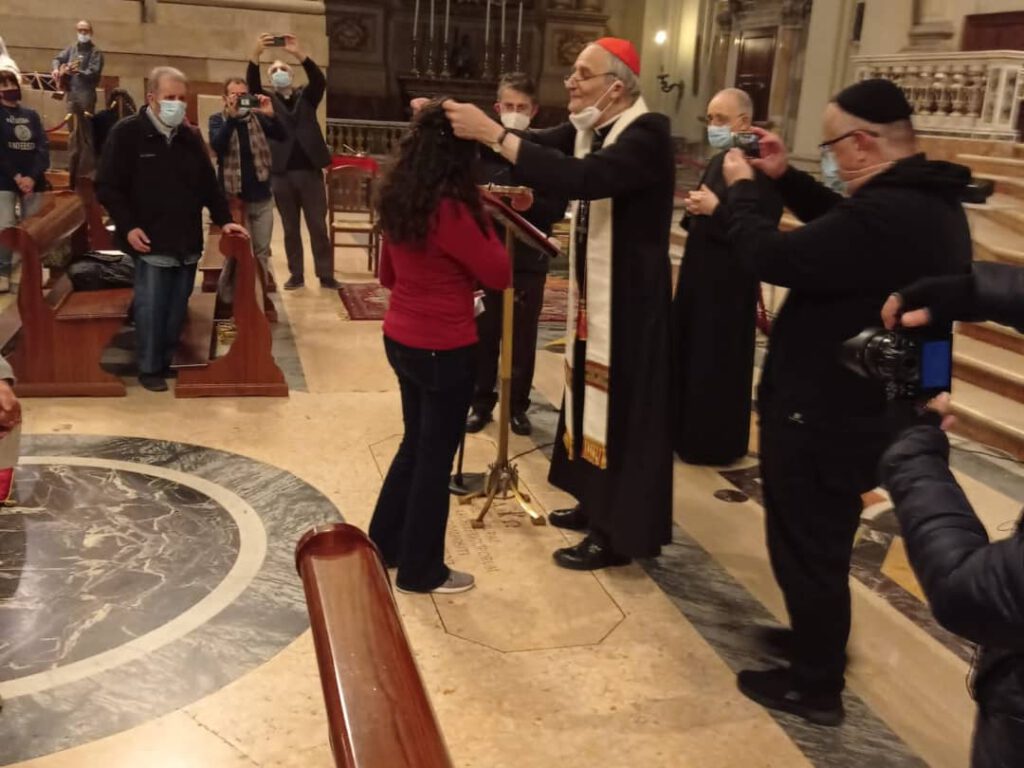
The cardinal reminded us that our mission does not begin only after we have found all the answers, but when Jesus’s Love, which we have seen and experienced, does not let us remain silent or quiet in the face of all the suffering and injustice we see!
Linda, too, in front of the assembly, explained in a few words what motivated her to make her choice to become a Lay Comboni Missionary, in spite of the fears that often hindered her path towards discovering her missionary vocation. She recalled some significant moments in her journey of discernment, like when, in the capital of Sudan, Khartoum – where she was working as an English teacher – in her free time she used to give literacy lessons to a group of young refugees from South Sudan, as a volunteer in a parish that was run by the Comboni fathers. Seeing these adult students slowly becoming able to read and write, and getting better jobs as a result, was a source of great joy and satisfaction.
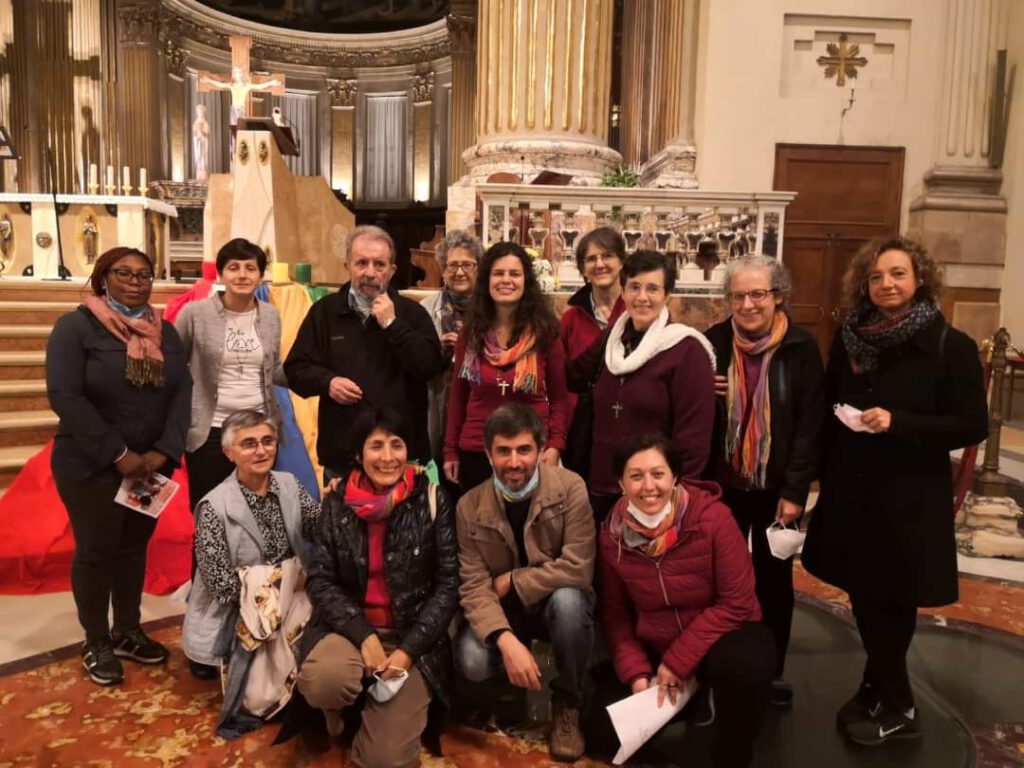
Through Linda’s words and enthusiasm, we could almost feel that very joy that she said she experienced when she came to realise, at some point, how immense Jesus’s love for her was. And this joy was so extreme and overwhelming that it slowly melted all fears and finally gave her the courage to decide that she wanted to donate all her time and serve the Lord totally. This, and the strength she finds in the Lay Comboni Missionaries as well as the whole diocesan community, through the mandate she was given today, is what will keep motivating her in this vocation.
As we rejoice for Linda’s decision to leave her home and family for a greater good, we hope that, through her, new common projects may develop, projects that may unite our community in Bologna and her community in Kenya, building new bridges of hope.
In the words of Saint Daniel Comboni: “Courage for the present, and especially for the future!”
CLM Bologna
Retreat and celebration of the patronal feast of St. Daniel Comboni in the parish by the CLM of Sarh (Chad).
Good morning everyone, we, CLM of Chad, prepared and celebrated the October 10 Solemnity of our Patron Saint Daniel Comboni as follows:
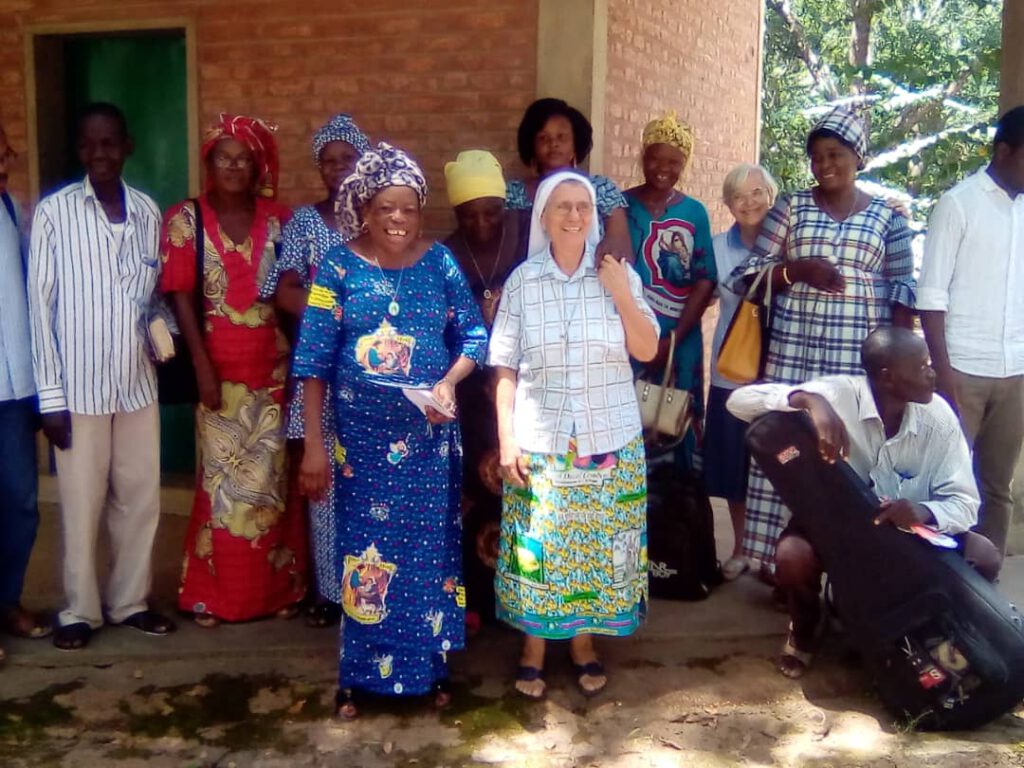
We started the day of October 8 with a retreat, followed by adoration of the Blessed Sacrament with the whole Comboni family in the parish.
The retreat continued all day on 9 October at the spiritual center of “Les Roniers”.
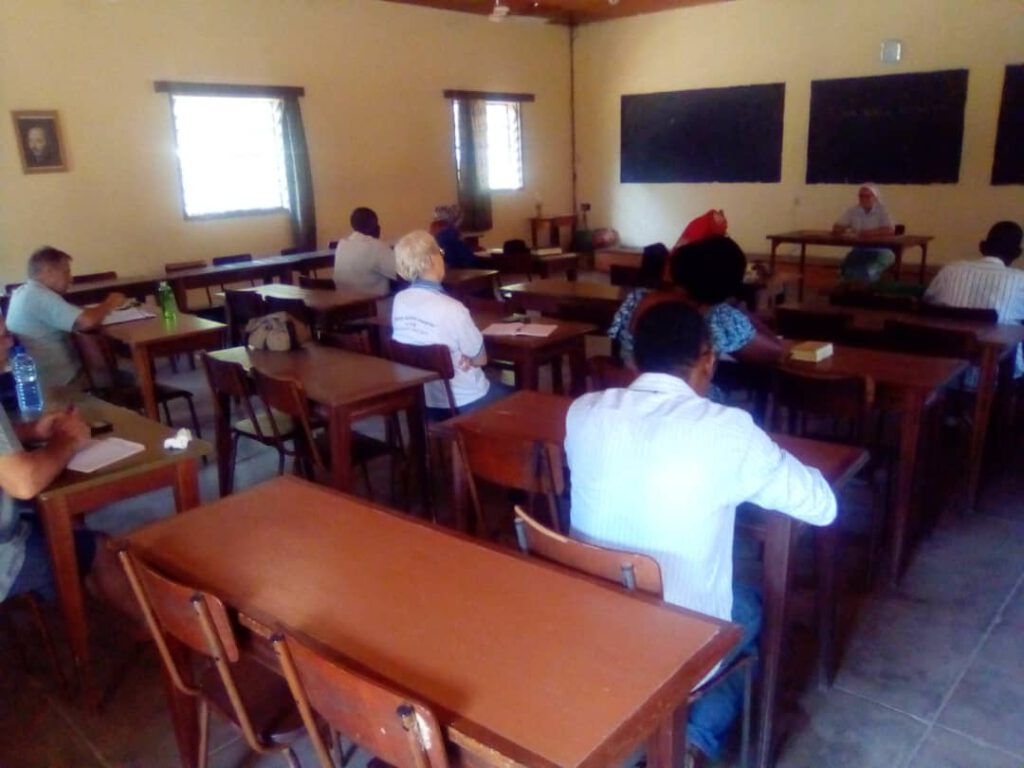
On 10 October Mass was celebrated in different parishes with the participation of 4 CLM.
In the evening we had a fraternal meal with the whole Comboni family, including the young Comboni postulants and novices.
It was a beautiful celebration; we leave here some photos.
